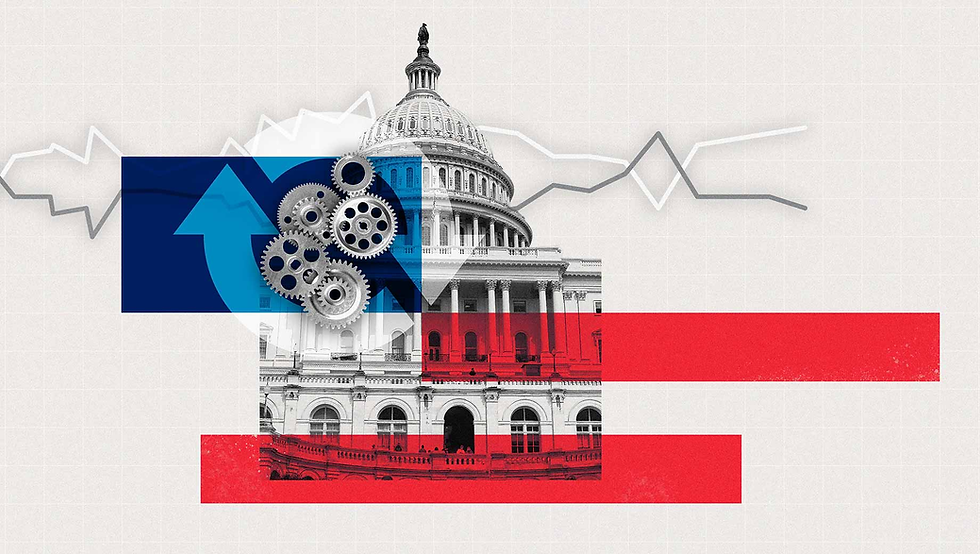The Future is Now: How B2B Marketers Can Use AI to Thrive
- Mike Herrera

- Dec 11, 2024
- 5 min read
In the ever-evolving world of B2B marketing, artificial intelligence (AI) is no longer a futuristic concept—it’s a present-day game-changer. From automating repetitive tasks to delivering hyper-personalized customer experiences, AI is transforming how businesses connect with their audiences, optimize campaigns, and drive growth. But how can B2B marketers effectively harness AI to stay ahead of the curve and prepare for the future? Let’s explore.

1. Personalization at Scale: The Key to Engagement
Gone are the days of one-size-fits-all marketing. Today’s B2B buyers expect tailored experiences that address their unique needs and challenges. AI enables marketers to deliver this level of personalization at scale by analyzing vast amounts of customer data to uncover insights about preferences, behaviors, and pain points.
For example, tools like Adobe Experience Cloud use AI to analyze real-time customer interactions and deliver personalized content across digital platforms. This not only enhances engagement but also builds trust and loyalty—key drivers of long-term growth in B2B relationships
Pro Tip: Start small by using AI-powered tools to segment your audience and personalize email campaigns. Over time, expand to more complex applications like dynamic website content and predictive product recommendations.
2. Predictive Analytics: Anticipating Customer Needs
AI’s ability to predict future trends and customer behavior is a game-changer for B2B marketers. Predictive analytics tools analyze historical data to forecast outcomes, such as which leads are most likely to convert or which marketing channels will deliver the highest ROI.
Take Salesforce Einstein Analytics, for instance. This AI-powered tool helps businesses predict customer behavior and recommend next steps, enabling sales and marketing teams to focus their efforts where they’ll have the most impact
By leveraging predictive analytics, B2B marketers can make data-driven decisions that optimize resources and drive better results.
Pro Tip: Use predictive analytics to refine your lead scoring process. Focus your sales team’s efforts on high-value prospects while nurturing lower-priority leads with automated campaigns.
3. Automating the Mundane: Freeing Up Time for Strategy
One of AI’s most immediate benefits is its ability to automate repetitive tasks, such as data entry, email scheduling, and social media posting. This not only saves time but also reduces the risk of human error, allowing marketing teams to focus on strategic initiatives.
For instance, Drift’s Conversational AI uses natural language processing to qualify leads and provide relevant information in real-time, increasing engagement by 40% compared to traditional chatbots
Similarly, AI-powered tools like Hootsuite automate social media management, ensuring consistent posting and engagement without manual intervention.
Pro Tip: Identify the most time-consuming tasks in your marketing workflow and explore AI tools that can automate them. This will free up your team to focus on creative and strategic projects.
4. Enhancing Account-Based Marketing (ABM)
Account-based marketing (ABM) is a cornerstone of B2B strategy, and AI is taking it to the next level. By automating processes and providing deeper insights, AI enables hyper-personalized campaigns that resonate with high-value accounts.
AI tools can analyze data from multiple sources to identify key decision-makers, predict their needs, and tailor messaging accordingly. This level of precision not only improves engagement but also shortens sales cycles, making ABM more effective and efficient
Pro Tip: Use AI to identify intent signals from target accounts, such as website visits or content downloads, and trigger personalized outreach campaigns based on these insights.
5. Content Creation and Optimization
Content remains king in B2B marketing, but creating high-quality, engaging content at scale can be a challenge. AI is stepping in to fill this gap by automating content generation and optimization.
For example, AI tools like Jasper and ChatGPT can draft blog posts, social media updates, and even ad copy, saving time and resources. Meanwhile, platforms like MarketMuse use AI to analyze content performance and recommend improvements, ensuring your content resonates with your audience and ranks well in search engines
Pro Tip: Use AI to generate content ideas based on trending topics and audience interests. Then, refine the output with a human touch to ensure it aligns with your brand voice and messaging.
6. Real-Time Customer Engagement
In today’s fast-paced digital landscape, real-time engagement is critical. AI-powered chatbots and conversational marketing tools enable B2B marketers to interact with prospects and customers instantly, providing the information they need when they need it.Drift’s Conversational AI, for example, has been trained on over 100 million B2B sales and marketing conversations, allowing it to respond intelligently to inquiries and guide prospects through the buyer’s journey
This not only improves the customer experience but also increases the likelihood of conversion.
Pro Tip: Implement an AI chatbot on your website to handle common inquiries and qualify leads. This ensures prospects receive immediate attention, even outside of business hours.
7. Overcoming Challenges: Ethical AI and Data Privacy
While AI offers numerous benefits, it’s not without challenges. Data privacy concerns, integration complexities, and potential biases in AI algorithms are all issues that B2B marketers must address.
To overcome these challenges, it’s essential to:
Conduct regular audits to ensure compliance with data protection regulations like GDPR.
Use diverse datasets to minimize bias in AI outputs.
Maintain transparency about how AI is used in your marketing efforts
Pro Tip: Partner with trusted AI vendors who prioritize ethical practices and provide robust support for compliance and integration.
8. Preparing for the Future: Trends to Watch
As AI continues to evolve, its role in B2B marketing will only grow. Here are some emerging trends to keep an eye on:
AI Agents: Autonomous AI agents will handle routine tasks, allowing marketing teams to focus on strategy and creativity
Immersive Experiences: AI will integrate with augmented and virtual reality to create immersive marketing experiences that captivate audiences
Decline of Traditional Playbooks: AI will drive new go-to-market strategies that prioritize meaningful engagement over traditional metrics like MQLs
Pro Tip: Stay informed about AI advancements and invest in upskilling your team to ensure they’re equipped to leverage these technologies effectively.
Conclusion
AI is not just a tool—it’s a transformative force that’s reshaping the B2B marketing landscape. By embracing AI for personalization, predictive analytics, automation, and more, marketers can unlock new opportunities for growth and innovation. However, success requires a strategic approach that balances the power of AI with ethical considerations and a human touch.
As we look to the future, one thing is clear: the B2B marketers who harness AI effectively will be the ones who thrive in an increasingly competitive and dynamic marketplace. Are you ready to take the leap? The future of B2B marketing is here, and it’s powered by AI. Follow me on LinkedIn. Check out my website.



Comments